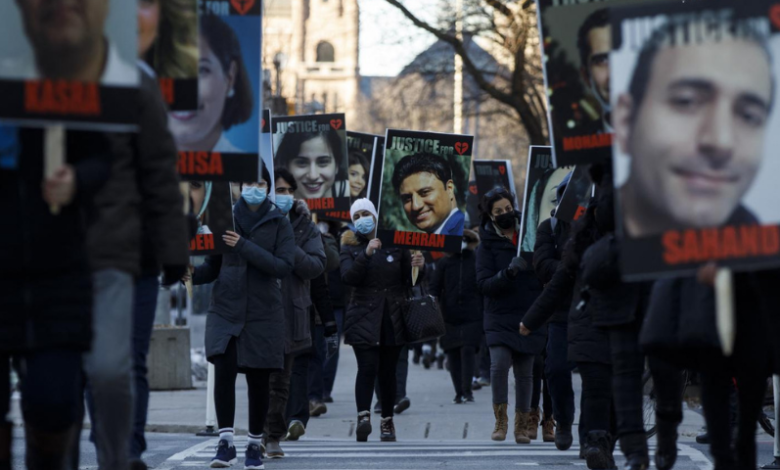
OTTAWA: A Canadian court ruled on Thursday that the downing of a Ukrainian airliner in Iran last year was deliberate and an “act of terrorism”, paving the way for possible compensation for victims’ families.
Ontario’s Superior Court of Justice found that “on a balance of probabilities” two missile strikes on the plane, belonging to the Ukraine International Airlines (UIA), shortly after takeoff from Tehran on Jan 8 “were intentional”.
“The plaintiffs,” Justice Edward Belobaba also ruled, “have established that the shooting down of flight 752 by the defendants was an act of terrorism.”
Lawyers Mark and Jonah Arnold called the decision “unprecedented in Canadian law”.
“It is significant for the impact it will have on immediate surviving family members seeking justice,” they said in a statement.
The legal action seeking $1.5 billion Canadian dollars (US$1.25bn) was brought by four people who lost family members in the disaster that killed all 176 aboard, including 85 Canadian citizens and 30 permanent residents.
They alleged the strikes were “Iran’s retaliation” for the US killing of Qasem Soleimani, commander of the Islamic Revolutionary Guard Corps Qods Force near Baghdad airport five days earlier.
Tehran admitted three days later that its forces had shot down the Kiev-bound plane “by mistake”.
In a final report in March, the Iranian Civil Aviation Organisation pointed to the missile strikes and the “alertness” of its troops on the ground amid heightened tensions between Iran and the United States at the time.
Ukraine, which lost 11 citizens in the disaster, said the report was “a cynical attempt to hide (the) true causes” of the tragedy, while Canada said it contained “no hard facts or evidence” and pledged to soon release the results of its own investigation.
Iran did not defend itself in court, but admitted three days after the disaster that its forces shot down the Kiev-bound Boeing 737-800 plane.
The amount of compensation to be awarded is to be determined at a later hearing.
Canada broke off diplomatic ties with Iran that same year, as relations frayed over Tehran’s support for Bashar al Assad’s government in Syria, its nuclear programme, and threats to Israel.
Iran rejects ruling
In Tehran, a foreign ministry spokesman dismissed as baseless the court ruling, saying that it did not have the authority to issue a verdict.
Saeed Khatibzadeh, the Iranian foreign ministry spokesman, said the verdict was “without any basis and objective evidence and reasons”.
The court “has no authority to address this air incident” since it was outside its territory and jurisdiction, he added.
Khatibzadeh also accused the Canadian government of “exploiting the sorrows” of victims’ families and alleged the judge had followed “political orders”.
At the time the jetliner was downed, Iran’s air defences had been on high alert for a possible US counter-attack after the Iranians fired missiles at a military base in Iraq used by American forces.
Those missiles were fired in response to the killing of Iran’s top general Qasem Soleimani in a US drone strike near Baghdad’s international airport five days earlier.






